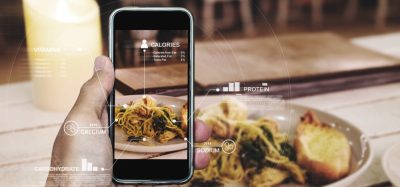Worldwide health authorities urged to rethink vitamin D guidelines following study
- Like
- Digg
- Del
- Tumblr
- VKontakte
- Buffer
- Love This
- Odnoklassniki
- Meneame
- Blogger
- Amazon
- Yahoo Mail
- Gmail
- AOL
- Newsvine
- HackerNews
- Evernote
- MySpace
- Mail.ru
- Viadeo
- Line
- Comments
- Yummly
- SMS
- Viber
- Telegram
- Subscribe
- Skype
- Facebook Messenger
- Kakao
- LiveJournal
- Yammer
- Edgar
- Fintel
- Mix
- Instapaper
- Copy Link
Posted: 5 July 2017 | New Food | No comments yet
Worldwide health authorities are being urged to rethink official guidance around vitamin D following the publication of a ground breaking study from the University of Surrey, which dispels the myth that vitamin D2 and D3 have the same nutritional value.


In the first ever study of its kind, using low doses of vitamin D in fortified food, researchers from the University of Surrey investigated which of the two types of vitamin D, D2 or D3, was more effective in raising levels of this vital nutrient in the body. Vitamin D3 is derived from animal products, while D2 is plant-based.
Researchers examined the vitamin D levels of 335 South Asian and white European women over two consecutive winter periods, a time when the nutrient is known to be lacking in the body. The women were split into five groups, with each group receiving either a placebo, a juice containing vitamin D2 or D3 and a biscuit with D2 or D3.
They found that vitamin D3 was twice as effective in raising levels of the vitamin in the body than its counterpart D2. Vitamin D levels in women who received vitamin D3 via juice or a biscuit increased by 75 per cent and 74 per cent respectively compared to those who were given D2 through the same methods. Those given D2 saw an increase of 33 per cent and 34 per cent over the course of the 12-week intervention.
The research also found that nutrient levels of both vitamin D2 and D3 rose as a result of both food and acidic beverages such as juice, which were found to be equally as effective.
Those who received the placebo experienced a 25 per cent reduction in the vitamin over the same period.
Current guidance given by a number of Government bodies around the world including the US National Institute of Health, state that the two forms of vitamin D are equivalent and can be used to equal effect.
Latest figures from Public Health England has found that more than 1 in 5 people in the UK have low levels of vitamin D and has increased the recommended intake of the vitamin to 10 micrograms per day, throughout the year, for everyone in the general population aged 4 years and older. Daily consumption of products containing vitamin D3 but not vitamin D2 will enable the population to meet this target helping to avoid the health implications such as osteoporosis, rickets and increased risk of cardio vascular disease which are associated with insufficient levels of vitamin D in the body.
This finding not only has implications for the health sector but also for the retail market. In recent years many retailers have added vitamin D2 to their products in the belief that it will help a person fulfil their daily intake. This study has proven that D3 is the most effective form of increasing vitamin D levels in the body.
Lead author Dr Laura Tripkovic from the University of Surrey, said:
“The importance of vitamin D in our bodies is not to be underestimated, but living in the UK it is very difficult to get sufficient levels of it from its natural source, the sun, so we know it has to be supplemented through our diet.
“However, our findings show that vitamin D3 is twice as effective as D2 in raising vitamin D levels in the body, which turns current thinking about the two types of vitamin D on its head. Those who consume D3 through fish, eggs or vitamin D3 containing supplements are twice as more likely to raise their vitamin D status than when consuming vitamin D2 rich foods such as mushrooms, vitamin D2 fortified bread or vitamin D2 containing supplements, helping to improve their long term health.”
Professor Susan Lanham-New, Head of the Department of Nutritional Sciences at the University of Surrey and who was Principal Investigator of the BBSRC DRINC funded trial said:
“This is a very exciting discovery which will revolutionise how the health and retail sector views vitamin D.
“Vitamin D deficiency is a serious matter, but this will help people make a more informed choice about what they can eat or drink to raise their levels through their diet.”









